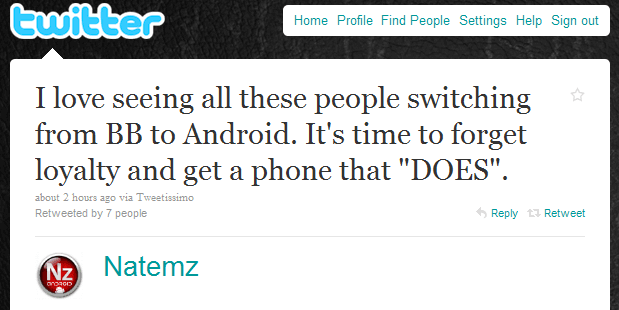A while ago, I created a search column in Tweetdeck to see what people have to say about loyalty on Twitter. To my surprise, once the column was created, tweets just started flying in. There has been rarely a day when I do not see at least a few hundred public tweets containing the word “loyalty”. Apparently, loyalty is on people’s mind often. Out of curiosity, I started to dig a little deeper and more systematically into what is being said about loyalty in these tweets. While I’m not quite done with my analysis yet, here I’d like to share some of my initial discoveries.
What/Whom Are People Loyal to?
When we talk about loyalty, we usually imply an object or person that we are loyal to. From the tweets that I have analyzed, here are the most often objects of loyal passion:
- A romantic relationship or partners in the romantic relationship
- Friends and family
- Sports team
- Brands/products
- Co-workers/boss
- Dogs’ loyalty to their owners (such as this touching story from Wikipedia about this Hachiko dog)
Interestingly, when specific brands or products were mentioned as objects of loyalty, mobile products such as cellphones and mobile providers were the most frequently referred-to product category. For instance, earlier today, there were a few retweets of the message by @Natemz below.

In this case, the tweet is actually a counter-loyalty message, where product features beat loyalty. But it still implies loyalty that some people used to have for BlackBerry before they switched to Android. Continue reading “Loyalty According to Tweeple”
